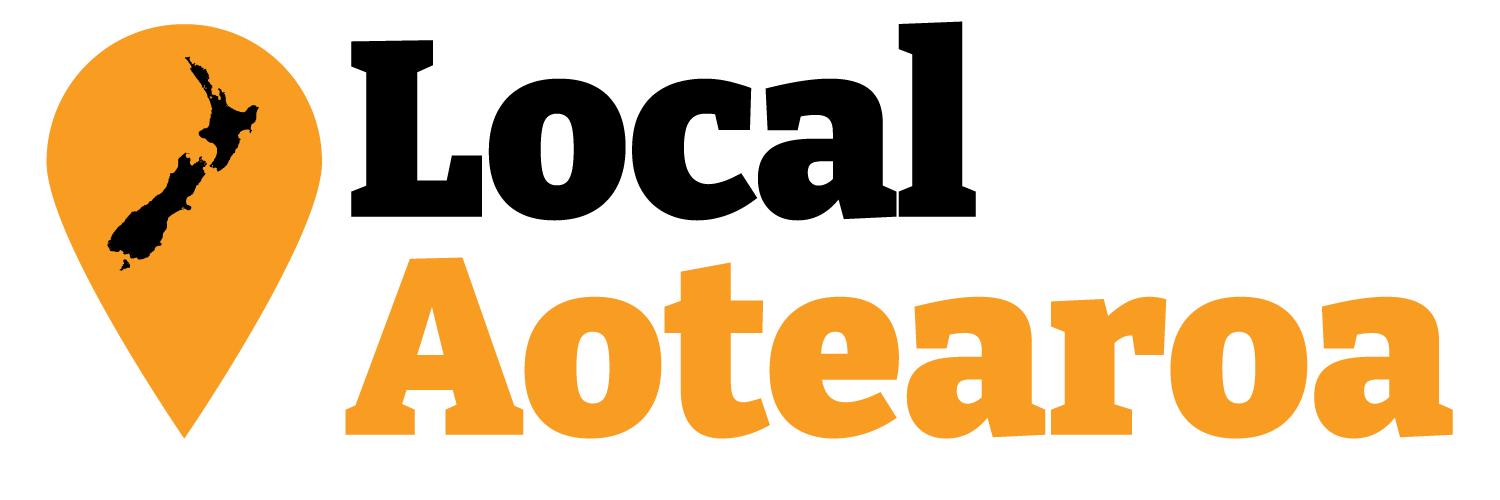Is Wellington City Council about to be replaced by commissioners?
An AI-generated image of a blazing sword of Damocles finally falling on a city hall.
Wellington’s beltway has been buzzing for months that Local Government Minister Simeon Brown will, at any moment, finally drop a sword of Damocles that’s apparently been hovering over Wellington City Council and install commissioners. More fuel was poured on the fire following remarks from Finance Minister Nicola Willis, Infrastructure Minister Chris Bishop, and Prime Minister Christopher Luxon.
But how did we get to this point? How real is the threat? And what steps are available to Local Government Minister Simeon Brown?
First, let’s traverse the recent history.
Before we get started, we need to remember that calls for central government intervention in Wellington City Council aren’t new, and at its lowest point last triennium under Mayor Andy Foster there were similar calls before an independent review initiated by Foster seemed to starve off the threat.
Anyway, back to the present triennium. Wellington Mayor Tory Whanau and Simeon Brown didn’t exactly get off on the best footing when the new government came to power last October, thanks to Whanau’s less than enthusiastic comments around the prospect of Brown becoming transport minister prior to the election. Following the election they appeared to have made amends, and a mayor and the government of the day not getting along is hardly reason for anyone to be concerned.
That was until Wellington Water’s woes started biting, especially when neither Upper Hutt City Council or Wellington City Council met the deadline to provide information for Wellington Water to respond to a request from Brown. That resulted in the minister issuing a formal request for further information from the two councils, which is the lowest level of formal intervention available to him under the Local Government Act.
It was following this issue that the drums really started to beat for a Crown Observer, though in this case it was probably more appropriately aimed at Wellington Water - which has now been the subject of a damning review.
Wellington City Council then went through a series of controversial issues, not least amongst them was the proposed deal for a corporate bail out of NASDAQ listed Reading Cinemas by buying out the land underneath their derelict complex on Courtney Place. That deal ultimately fell apart as council support for it faded, but not before it had called into question the wisdom of both the Mayor and senior council staff for pursuing it (and how they pursued it too including a $1,400 dinner paid for by the council and $500,000 being spent on consultants).
Then there was the long-term plan and the proposal to sell off Wellington City Council’s 34 percent stake in Wellington Airport. After the sale was passed by council’s long-term plan committee - with the votes of the two mana whenua appointees being critical - the long-term plan passed. There was a lot of discussion at the time about whether Wellington City Council would face intervention over failing to adopt its long-term plan by 30 June, despite the reality that councils haven’t faced intervention for missing that deadline before.
There’s an example just over the hill too, with Carterton District Council having missed the deadline this year and had its mayor and councillors trading barbs through local media (with Mayor Ron Mark accusing his councillors of attempting to stage a coup to get their LTP passed), yet there wasn’t any talk of Carterton facing intervention for this.
However, whatever respite that passing the LTP might have provided to Wellington City Council, its been short-lived. During an acrimonious council meeting last week the airport sale was axed, meaning an amendment to the long-term plan will now need to be developed, consulted on, and passed. Even had that Notice of Motion not passed last week, the airport sale would have been relitigated in December when an options paper came back to council regarding valuations and options for proceeding or halting. There’s a reasonable chance the LTP would have needed to be significantly amended then anyway.
It’s not unusual for councils to have to amend their long-term plans as circumstances change. Horowhenua District Council undertook a long-term plan amendment last year when they were going to have to do a new long-term plan this year anyway. What is unusual is to end up having to undertake a long-term plan amendment mere months having just adopted the LTP. However, it’s not entirely surprising that Wellington City Council has ended up in this position.
Back during the original debate over whether the long-term plan as recommended by the delegated committee could be amended by council, council officers were claiming that it couldn’t be. They maintained that line of advice last week, even though as Victoria University of Wellington’s Dr Dean Knight demonstrated that council still has the power to amend recommendations on the long-term plan (and questioned whether they could delegate such an important decision as the airport sale at all).
The problem is had council rejected the airport sale back in June, they would’ve missed the 30 June deadline for adopting the LTP due to the need to rework the LTP to take account of a non-sale back then. While this would’ve been unlikely to lead to intervention, some feared it might so a majority on council pressed ahead with a politically untenable LTP. Rather than getting it right the first time and running a little late, the council has ended up having to have a second stab at it, which is messy and less than optimal, but the council has been operating within its rights throughout this.
And that’s a key point - at this point the council is still able to make decisions. It’s not yet stuck in gridlock like Tauranga City Council was. It’s not facing financial catastrophe like Kaipara District Council was, it hasn’t failed at its core functions like Environment Canterbury or Christchurch City Council experienced.
Wellington City Council is in one of the most challenging positions faced by councils around the country. It’s still uncovering huge costs from recent major earthquakes, it’s dealing with decades of underinvestment in water infrastructure, and its economy and population is stagnating from a combination of changed work patterns following the pandemic and recent cuts to government spending and staff numbers. But those challenges, and policy differences between central and local government on how to address them, aren’t a reason for intervention.
Where things might escalate to needing the minister to intervene more fully is if the long-term plan amendment isn’t credible or looks like it can’t be passed by the delegated committee and council. No doubt Brown’s office will be pouring over the existing LTP to test all the assumptions and advice from council staff in it to identify if there are any red flags that should be raising alarms. They’ll likely do the same to the eventual LTP amendment consultation document and advice provided to elected members around that.
So what options are available to the minister if he does decide there’s a significant enough issue to intervene?
We’ve covered these previously, but to quickly recap there’s a sliding scale with the main actions being:
requests for information such as what happened with Wellington Water and then Wellington and Upper Hutt,
appoint a Crown Review Team, which is more of a lighter touch investigation that ultimately leads to recommendations on what to do next for the minister and local authority,
appoint Crown Observers who become the minister’s eyes and ears on the ground, can be more hands on in terms of assisting the local authority as well as investigating specific things, and formally reporting back with recommendations,
appoint a Crown Manager who has with a remit (like Lawrence Yule has been with Wairoa District Council and Hawke’s Bay Regional Council) to direct the council on what actions to take to fix specific areas of concern,
dismissing the council and calling new elections (which seems unlikely given it’s only a year to go until the next election and there’s no guarantee a new council won’t find itself in the same position)
appointing commissioners (as happened in Tauranga), which basically requires the minister to believe that the council has failed in such a way that it is beyond all hope.
It’s entirely possible that Brown could appoint a Crown Observer. It would be something of a warning shot to the council and lay the groundwork for future intervention if necessary. It’s clear that Wellington City Council is taking the potential for even a low level intervention seriously with them holding an urgent meeting with elected members and Mayor Whanau trying to meeting with Brown.
If you read Simeon Brown’s comments in this New Zealand Herald story, despite a lot of frothing from others Brown is much more moderate in his comments than his Cabinet colleagues have been. He acknowledges that the council has been democratically elected and has a mandate from its community, he points out that the threshold for intervention is high, and that there needs to be a significant enough issue that he would need to make a judgement call on whether to intervene. The fact that Brown didn’t intervene in Wellington Water, despite it clearly being an entity that was facing both organisational and governance dysfunction demonstrates the bar is very high.
The Minister’s office has apparently already requested information from council staff, and again that’s not unreasonable. Brown needs to ensure any decision to intervene, regardless at what level, is solidly justified given it could be subject to a judicial review.
Councils that are beyond help usually can’t organise themselves to mount a last ditch judicial review to challenge the appointment of commissioners, but I’d be surprised if Wellington City Council wasn’t able to galvanise themselves to attempt it if the sword of Damocles finally dropped.
There’s also likely to be to some extent an element of brinksmanship here. The Government is making it clear intervention is on the cards if Wellington City Council doesn’t sort itself out, and they’re giving the council one last opportunity through the LTP amendment process to get themselves “back on track” as Luxon is so fond of saying.
The viability and ability of the council to progress and realise the LTP amendment is either going to be the get out of jail card, or the straw that broke the camel’s back.





